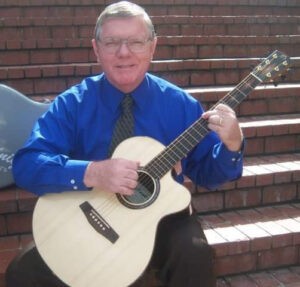Yesterday, a friend agreed with an article about liking old hymns more than much of today’s worship music. This is right where I live. With 50-plus years of music ministry under my belt, and as a bit of a self-proclaimed hymnologist, I definitely have a love and appreciation for the old hymns, although my conclusion may surprise some folks.
When I say I like old hymns, I’m not just talking about the ones we sang when I was growing up in Southern Baptist churches, but the really old hymns that few people remember, like St. Clement of Alexandria’s Shepherd of Tender Youth, dating back to the third century.

John Cotten
Wait. We still sing some of the metrical Psalms that date back even further. I love hymns from early catholic chants, like Of the Father’s Love Begotten, or the eighth century’s Be Thou My Vision. I love the hymns of Luther and Calvin, Watts and the Wesleys, Fanny Crosby and Homer Rodeheaver. I love the hymns of B.B. McKinney and Bill Gaither, Milburn Price, and Keith and Kristyn Getty.
Ah, but Psalm 96 instructs us to “sing a new song unto the Lord.” As I’ve studied the history of worship music, I’ve noted that since the beginning, each new generation has tended to reject the worship music of the previous two or three generations in favor of their own. This is not something new. I first experienced it back in the 1950s. While most Baptists were singing stately old hymns like O God, Our Help in Ages Past or bouncy revival hymns like Standing on the Promises, children and teens were joyfully singing about God’s love being Deep and Wide, or songs like Every Day with Jesus Is Sweeter than the Day Before.
We didn’t know it then, but those little choruses were the seeds that grew into the “Jesus songs” of the 1960s, like I’d Like to Teach the World to Sing, and the era of the youth musical, with songs like He’s Everything to Me and Pass It On. Jesus Freaks looked like, sounded like and acted like hippies, except their message was Jesus, not drugs or free love. I traveled around the world singing and playing with the Continental Singers, using the coolest of the cool pop music of the day, heavily influenced by Ralph Carmichael.
Fast forward to the 1990s, and we see the development of another kind of “new song unto the Lord,” something we called Jesus Rock, Praise and Worship, and later CCM, or Contemporary Christian Music.
Calvary Chapel in California, Maranatha and Vinyard Music published guitar-band-driven worship songs that ignited the “worship war” between proponents of this type of worship music and traditional hymns. That war has all but died out today, although some people still want to re-fight those battles.
So which do I personally prefer, today’s CCM or the traditional psalms, hymns and spiritual songs? Answer: That’s the wrong question. The question I need to ask myself is more: “What music will best help this church encounter God in a fresh, powerful way, one that moves them to deeper devotion and greater obedience, so that we’re not just hearers of the music but doers of what God tells us through it?”
“So which do I personally prefer, today’s CCM or the traditional psalms, hymns and spiritual songs? Answer: That’s the wrong question.”
In answering that question, my personal likes and dislikes fade into the background, appropriately.
I look at the faces of the people I lead in worship. We have tiny children, kids in kindergarten to fifth grade, adolescents, older teens and college-age young adults, young parents and those in their 30s. We have folks 40 to retirement, and folks up into their 90s. None of these dear souls are expendable. None are more important than the others in God’s kingdom. My job is to help each of them encounter our Father God, Savior Jesus and the ever-present Holy Spirit through their participation in musical worship, using the music that is their heart language.
Some will quickly point out that you can’t please everybody. I agree, except that’s not my purpose. My purpose is to point people God-ward in ways that pleases God. Not me. Not even them. That is a huge difference that too many people fail to catch.
When we all get to heaven, we’ll likely be singing to the accompaniment of far more instruments than just piano and organ, or drums, bass, electric lead guitar and acoustic rhythm and a synthesizer or two. No one will ever utter, “I don’t like that song,” or “It’s too long or repetitive.” No one will say, “That song is too old and boring!” Our focus will be so strongly fixed on the One we worship that such comments disappear like shadows in a surrounding sun.
So that’s my goal in leading musical worship here today. Not to please one group at the expense of another. To please God with our worship at the expense of our own self-centered likes and preferences.
John Cotten serves as minister of music at First Baptist Church of Eatonton, Ga. He previously serves as associate pastor for music of First Baptist Church of Milledgeville, Ga., and other Baptist churches in the state. He is a graduate of Mississippi College and Southern Baptist Theological Seminary.
Related articles:
Remembering Ralph Carmichael, the father of contemporary church music | Opinion by R.G. Huff
Hymn Stories: ‘I Danced in the Morning’ | Opinion by Beverly Howard
Hymns for a Lifetime: Poetry added to music makes not only hymns, but memories


